The Greatest Samurai (The Early Years)
Samurai were the masters of life and death in old Japan. If you were a peasant, you could be killed for looking at a samurai the wrong way. If a samurai killed another Samurai all he had to do was make a statement at the local government headquarters and he was scott free.
Samurai were trained from the cradle in a variety of martial arts. They were expected to give their lives in the service of their Lord, and they were expected to make that life given worth something. Samurai were arguably the greatest warriors this planet has ever seen.
The greatest Samurai of them all may have been Sokaku Takeda. Compared to Myamoto Musashi, referred to as a Tengu (demon), he mastered many different skills and weapons including sword, staff, half-bow, short-staff, and throwing darts. He also received a certificate in the spear arts of the Hozoin-ryu, and he taught over thirty thousand students during his lifetime, among them the founders of Aikido and Hapkido.
From high in a tree the young child watched the approaching armies. The Imperial Forces with their waving banners moved in geometric fashion across the vale. The infantry chanted in thunderous voice and dared the world, and the immaculate cavalry on their high stepping chargers darted back and forth, shouting challenges to the rebels.
The boy was small for his age, which was only ten, and yet he studied the precision movements of the large numbers of men with a bold and fascinated eye. They moved well, and they looked so beautiful in their lacquered armor, yet his father had merely referred to them as trained dogs. Suddenly, beneath the boy, who’s name was Sokaku Takeda, the rebels emerged from the forest.
These were not peacocks, but taciturn, worn warriors, and among them Sokaku could pick out his father, and other family members. These were the men of his clan, the Aizu, and he felt a fierce surge of pride. Now we shall see, he thought, and he unconsciously flexed his fingers–and quickly unflexed them.
He had been slow in mastering a grappling technique the night previous, and his father had held his hand over the fire while his grandfather watched. He had not cried, had merely stared as his flesh singed. When the punishment was done he had not cradled his hand, but merely let it hang, a mute reminder to work harder, to master the techniques quickly lest the burning punishment happen again.
His flesh had been burned before, and it would be again, and what was more important to him now was the coming battle. Watch and learn, his father had cautioned him the night previous–learn what gets a man killed, and what lets a man live. The ten year old knew the truth of his fathers words, and he settled in to watch the battle.
The Greatest Samurai (Understanding Death)
Ten year old Sokaku Takeda crawled into the branches of a tall tree and prepared to watch and learn his lessons. Mid-morning the Imperial troops sallied forth, and were met with wave upon wave of arrows. The men of the Aizu clan were remarkable bowmen, and the Imperials had good armor, still, the downslope of the vale was covered with screaming men by the time the Imperials reached the bottom and began their charge.
Still shooting arrows, the Aizu drew back to the tree line. The cavalry, blunted in their efforts, pulled around and let the infantry through, and now the battle began in earnest. Lines of marching men were separated by the trees, and the Aizu, who had picked their strategy well, engaged with spear and sword.
Screams, shrieks, orders shouted into the bloody wind. More Imperial troops arrived, and the Aizu were driven back. Underneath Sokaku’s tree several Aizu made a stand.
Arrows thunked, and were slashed out of the air by arcing swords. The swords, polished to a high degree over the past weeks, were now shiny with blood, slick with the fluid of dying men. Raptly, and with no trace of fear, the ten year old boy watched as an Imperial Samurai reached the small conflict taking place at the base of his tree.
The samurai deflected and moved past a spear thrust, and then his own sword was deflected, and a dagger placed just so between the joint of arm and chest. It slipped through the armor and the warrior gave a groan and sank down to his knees. For a moment, the battle raged, then the small group of Aizu moved back, and the lone Samurai was left, alone, on his knees, to bleed out his final few moments of life.
The muted roar of the battle drifting through the trees, the ferocious action moved elsewhere, the Samurai looked up. Whether to glimpse a final glimpse of sky, or to see the heavens open to receive him, the result was the same–he went eyeball to eyeball with a ten year old boy. Avidly, Sokaku had studied the techniques used in the battle, and now he was beyond technique, he was in the depths of a departing spirit.
For long moments the two stared at one another, eyes wide, sharing an eternal moment, then the Samurai’s pupils seemed to widen, and he sighed, and he died. He died in place, on his knees, but upright, too proud to lay down even in death. And the boy felt the spirit leave, and he marveled at its easy passing.
And though the Samurai was an Imperial–had been an Imperial–he was still a Samurai, and the boy felt pride, for he was a Samurai, too. Then he felt a double dose of pride, for not only was he Samurai, like the brave warrior who knelt beneath him, but he was Aizu, the fiercest of the Samurai warriors. And through the day the battle swelled and receded like storm tossed waters, and again and again warriors fought and the boy held his perch and watched and learned.
The Greatest Samurai (Defeating Justice)
It was 1882 when Sokaku Takeda, twenty-three years of age, strode proudly into the Fukushima courtroom. At the head of the room the magistrate felt a cold wind. It was a new era, the Samurai were being disarmed, and yet this proud peacock didn’t seem to understand this.
On a table at the side of the courtroom a sword had been placed. So many men killed by that length of steel, so many injured, yet when the magistrate looked up at the cool-eyed Samurai who had wielded the sword there was no expression on his face. And looking into the eyes of the young man was like looking into a bottomless well. At midnight. With no moon.
And the judge considered what he had heard concerning this proud peacock of a samurai. An Aizu, he had begun a warrior’s pilgrimage when he was just thirteen, traveling the countryside, training with top swordsmen, even members of the shogunate’s Kobusho. Finally, he had begun taking on challengers, killing scores of men, and now he had come to Fukushima.
The magistrate studied the young man, who stared back. The judge had old eyes, and he was trying to agree with Imperial edict and put an end to the ways of the Samurai. The young man had haughty eyes, and those eyes pierced the old man like a winter wind, taking his measure, seeing through him, daring him.
In the presence of such a powerful personality, under the gaze of such piercing eyes, the magistrate felt the depths of his mortality. He had no doubts that if he rendered a verdict unpleasing to the young man, sword or no, the young man could pass a verdict on the court. A bloody verdict.
“You have killed many people.” The judge forced himself to speak. He was terrified.
“They came at me with picks and shovels and rakes. I merely defended myself.” Young Sokaku Takeda showed no remorse.
“So many lives lost.” The magistrate shook his head sadly. Inside, he was quivering.
“They should not have come at me.” Sokaku showed no expression. He was not in danger here.
For a moment, the old man weighed the defendant. So fierce, so brave, so proud. “Since it was self defense, we shall let you go, but we shall keep your weapon.”
Still no emotion. “The age of the Samurai is over,” admonished the magistrate. Still, the young man merely stared at the judge, and the magistrate, in spite of his position, felt fear assail him.
Disarmed, the young man was no less dangerous. Spoken down to, he was yet above his foe. And Sokaku Takeda, not cowed at all, strode proudly from the courtroom.
The Greatest Samurai (Death in the Bath House)
Sokaku Takeda, fifty-two years of age, settled back into the steaming, hot water. Sighing…he considered his position. He had been called into this wilderness town two weeks previous, but so far nothing had occurred.
Where were the brutal gangsters who ran the smuggling and the gambling? He had seen their slave labor operations, but so far he had seen nothing but a pair of skulkers who had trailed him from a respectful distance. Where were these gangsters that razed police stations and frightened the constabulary so much that they had called for him?
Where were these–CRASH! The door to the bath house banged open and six thugs rushed into the room. They held their swords in the ready position and advanced around the edge of the large bath.
At the first sound Sokaku had scrambled from the water. He grabbed the first thing that came to hand, which was a towel. Fortunately, in his hands absolutely anything could be made into a potent weapon!
“You’ll learn some manners here,” shouted one of the gangsters, lifting his sword high. All the gangsters edged forward then, snarling insults and dire predictions of what they were about to do to him. If they could surround him effectively then they could rush him and kill him.
Interestingly, the old man didn’t even have his sword, but his reputation was so fierce that none of them were willing to be the first to come at him. After all, he had killed dozens of able opponents, high skilled samurai, and they were well aware that they were not samurai. It would be far better to surround and rush him.
“Dogs that teach manners, eh?” Sokaku twisted the towel to make it more effective. He dipped the tip of the towel into the water.
Giving a fierce scream, one of the thugs attacked. Sokaku sidestepped, keeping a sure footing on the slippery surface, and snapped the towel. Crack–and the thug fell to the floor and grabbed his ribs in agony.
Another street criminal dashed forward, and another one. Crack! Crack!
Sokaku moved like a wraith and flicked his towel like lightening. Crack! Crack!
Five of the gangsters lay on the floor of the bath house now, moaning and holding their cracked ribs, or entirely unconscious. The sixth gangster, seeing the way of the wind, dropped his sword and dashed out of the bath house. Behind him, Sokaku Takeda tossed the towel to the side and began dressing.
The Greatest Samurai (Defeating the Gangsters)
Having defeated all the gangsters who had attacked him in the bath house, Sokaku Takeda dressed and strode imperiously from the building. It was only a short walk to the inn. Once there, he demanded of the innkeeper a sword.
The innkeeper, a timid soul, was completely confused by the request. Somewhere, from some unseen hand, however, a sword was offered, and Sokaku hefted the blade. The arc of steel had a good feel to it.
Outside the inn a clamor could be heard. Striding down the street were the entire bunch of gangsters. They brandished swords and clubs and at their head was the cowardly fellow who had run from the bathhouse.
“We’ll show you some gangster manners!” At the sides of the streets astonished citizens moved back and watched in fear. Gangsters swaggered in pairs and small groups, but never had they seen such an outpouring of the criminals.
The innkeeper begged of Sokaku not to ruin his inn. Sokaku stepped past the innkeeper and out onto the balcony. Sword in hand, he stood forth in a challenging manner, and the entire troupe of gangsters came to a sudden stop.
A silence fell over the street, and in the silence crackled the raw energy of the fully enraged Sokaku. “Come if you will,” shouted Sokaku. “The streets will be filled with dead bodies before I am through!”
The silence lasted but a moment more, then a woman, standing on a sidewalk with a baby, curled her baby into her arms and scuttled off. Then a pair of old men rushed down an alley. Suddenly, the street became a race track for departing citizens.
The gangsters looked around in shock, and then they realized something: they were alone, and the man on the balcony was looking at them! A gangster at the rear of the pack began backing up, then another gangster moved off, and within a minute the street was empty. A short time later the boss of the gangsters sent word to Sokaku that he would like a truce.
The Greatest Samurai (The Haunted Years)
The night was dark and the house was silent. It was so silent that if a mouse had scratched in a corner, it would have been heard through out the entire residence. Suddenly, a low moaning sound slowly rose and fell, then silence, then more moaning, rising like a wind warning of storms to come.
“Master!” The servant rushed through the house, searching for where Sokaku Takeda slept, for the Master slept in a different location every night, and changed his location every hour or two. It was the only way, he claimed, that he could be safe from his enemies.
“OOOO!” The moan was now a full throated shout, and the members of the household could be heard moving about, muttering nervously at the sound of the Master’s nightmare. At last, the servant located where Sokaku had unrolled his bedding–in a cupboard under a stairway.
“Master!” The servant shouted, afraid to approach and knock on the cupboard door, for Sokaku slept with a dagger and an iron fan, and in the grip of a nightmare he could easily cut down his faithful servant. The servant reached into a canister and withdrew an umbrella.
Gingerly, he reached forward and tapped on the door. The doors burst open, and before the servant could even see Sokaku, the old man had thrown him on the floor. A sharp dagger pricked the servant’s throat.
“Eh? Did you think I wouldn’t see you? I killed you before and I can…what?”
Another servant appeared with a lantern, and the sudden influx of light made Sokaku look around. He was disheveled, bleary-eyed, pale. The dagger had brought forth a drop of blood from the first servant’s throat, and the arm of the first servant, where Sokaku had gripped him, felt like it was going to break.
“Master?” The first servant pleaded desperately for his life. Bewildered, Sokaku looked at the man in his grip then he blinked and realized what had happened.
Wearily, but still filled with power, he reached into the cupboard and drew out his bedding. Without another glance, he left the room, searching for another place to settle down. If only he could sleep undisturbed, just for a few hours, but always…always…the souls of the people he had slain sought him out.
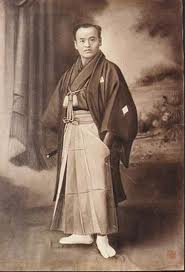
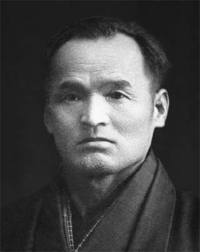

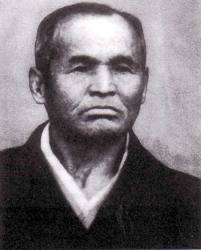
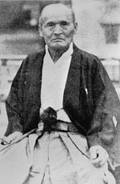
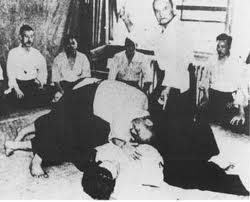

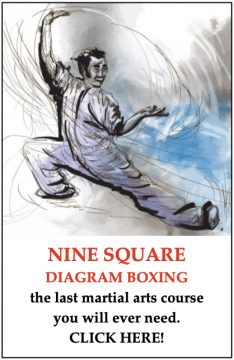
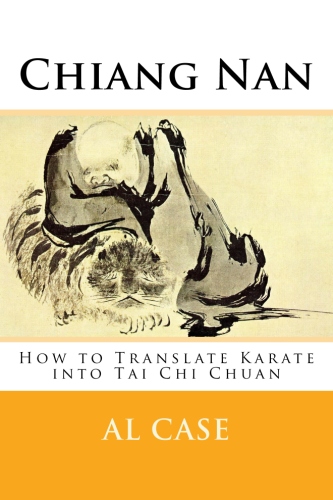

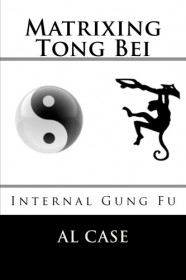


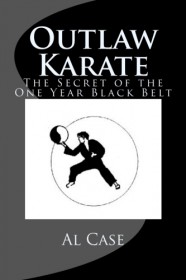
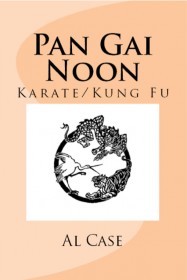
Pingback: Sokaku Takeda_The Greatest Samurai Who Ever Lived! « Auf dem Dao-Weg
Not sure what you’re saying, but thanks.